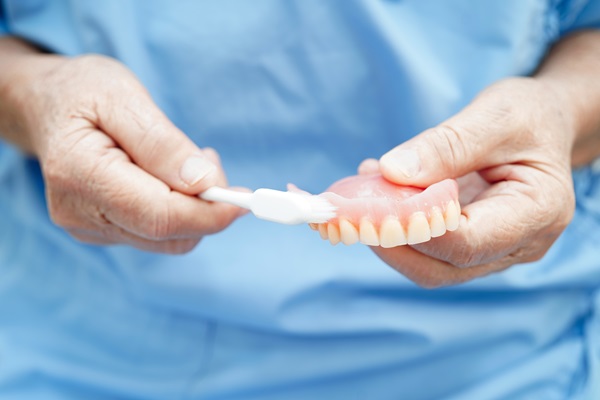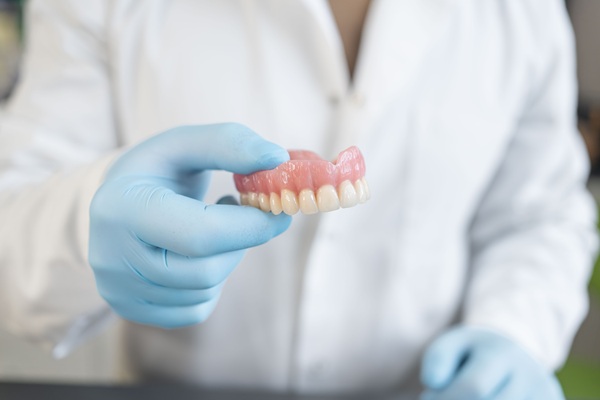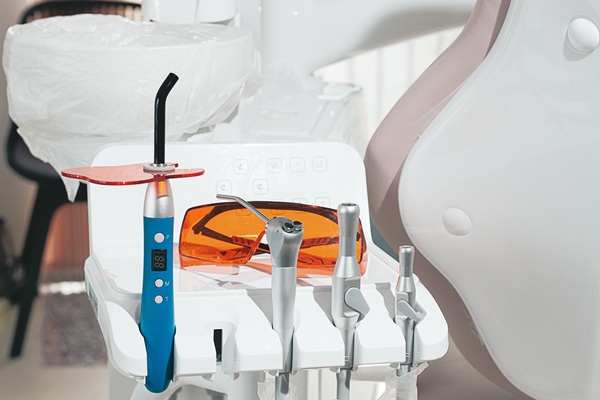What Types of Materials Are Used in Making Dentures?

A lot of people are curious about what materials are used to make dental dentures. This article will show you the different types of materials that can be used and their benefits, and which material is best for your situation.
What are Dental dentures?
Dental dentures are used to replace missing teeth that cannot be fixed with a dental bridge. A denture is removable and can typically be taken out at night when you sleep, but it may also have to be removed during meals if it obstructs your chewing ability or makes speaking difficult.
There are two types of dentures: complete set (all-on-four) dentures and partial dentures (traditional). Both types require using an adhesive material called denture adhesive cream before placing them in your mouth so they will stay securely on your gums all day long.
However, there are some differences between these two sets as far as the materials go, which we'll discuss later in this article.
Adhesive
First, let's take a look at denture adhesive creams. These come in a tube or jar and are made of waxes, fats, oils, and emulsifying agents. Some dentures will already have denture cream embedded into them (such as the Snap-On Smile), but if your dentures don't contain any adhesives, you'll need to apply some before putting them in your mouth.
This is where denture cream comes into play - it acts like glue so that they won't fall out when talking or eating/drinking.
Materials
Before we get further into which materials can be used for making dentures, let's talk about how these items all work together.
The most common material types used to make quality dental appliances include acrylic resin plastic, polyethylene, and denture teeth.
Acrylic resin is the material most dentures are made of. However, plastic can also make partial dentures. Polyethylene (plastic) is a popular choice for people who wear removable dentures because it's less expensive than other materials but still strong enough to hold up without any problems or discomfort.
Denture teeth come in three different styles: regular denture teeth, small compact denture teeth, and sizeable full-coverage denture teeth. Average-sized dentures have one tooth per arch, while smaller ones typically consist of two to four on each side.
Full coverage options give you an even more extensive set with more than six individual pieces that fit into your mouth all at once, so you have a full smile.
Recommendation
Now that we know what materials dentures are made of, the next question is: which material do dentists and dental technicians recommend?
It depends on your case - the type of teeth you lose, how many teeth need to be replaced, along with any special requirements. For example, suppose you go through extensive oral surgery or take medications like blood thinners. In that case, it's best to stick with polyethylene because the acrylic resin can cause bleeding in some cases.
On the other hand, if you wear denture adhesive cream every day (which most people do), then you'll want an appliance that contains denture adhesive so it will stay securely attached all day long. Again, this would be either acrylic resin plastic or polyethylene.
Conclusion
In the end, denture adhesives work best for most people since you don't have to worry about them falling out when talking or eating/drinking - they'll snap right back into place if anything causes it to pop off your gums (like drinking from a straw). Also, dentures that contain denture adhesive are typically made of acrylic compact ones depending on how many teeth need replacing and what kind of individual case we're dealing with.
Request an appointment here: https://copperhilldentalpartners.com or call Dental Partners Copperhill at (423) 241-6102 for an appointment in our Copperhill office.
Check out what others are saying about our dental services on Yelp: Dentures in Copperhill, TN.
Related Posts
Dentures are a widely used solution for individuals who have lost multiple teeth. However, despite their long history and proven effectiveness, several misunderstandings about dentures persist. These misconceptions can lead to unnecessary hesitation or to people not pursuing the care they need, affecting their oral health and comfort. Clarifying these misunderstandings can help those considering…
Are you looking for more information about denture adhesives? When you need to wear dentures so you can achieve good oral health, it is important to understand everything there is to know about dentures, including proper denture care. Denture care also includes potentially wearing denture adhesives.According to the Food and Drug Administration, in most cases,…
A denture reline is a normal part of wearing dentures. Relines are needed to fix ill-fitting dentures. You experience bone loss when you wear dentures, and eventually, that will cause the dentures to fit poorly. The reline adjusts the shape of the dentures, so they fit once again. Most people need a reline every two…
Teeth whitening works by applying a peroxide gel that lifts stains from enamel, the tooth’s outer layer. Custom trays hold the gel evenly against the teeth, promoting consistent shade change while limiting gel on the gums. As a general dentist, the focus stays on fit, concentration, and timing to help patients whiten gradually and comfortably.…


